[SOURCE: The Huffington Post, AUTHOR: Alex Nogales]
On January 8th I watched in horror as news broke on the senseless shooting rampage in Tucson, Arizona. Over the past two weeks, we have joined in the national prayers for the victims and their loved ones. I have also witnessed a national debate emerge regarding the severe tone that has come to accompany American politics and media. I have gladly observed prominent figures -- Republicans and Democrats alike -- call for a softening of extreme rhetoric.
Regardless of whether you think that rhetoric instigated this shooting or not, I believe it is high time that we have a national conversation about the impact of the demonizing and violent language that has become all too common over mainstream media. I have thought so for some time and I am saddened that it takes a tragedy of this nature for the media and the public to notice that we have a serious problem in this country with extremist rhetoric and activities.
This month marks the second anniversary of NHMC's call to action on hate speech in media, whereby NHMC made two requests. First, that the Federal Communications Commission open a public docket to examine the extent and effects of hate speech in media, and consider non-regulatory options for counteracting the violence that extreme rhetoric breeds. Second, that the National Telecommunications and Information Administration update its 1993 report, The Role of Telecommunications in Hate Crimes.
Because NHMC works on behalf of the Latino community, our petition for inquiry focuses on the pervasiveness of hate speech against Latinos, but of course we all understand that many other groups have been the targets of hate speech in media. This is true, in particular, for the last several years, as calls for and legitimization of violence has become more prevalent over broadcast, cable and the Internet. The petition cites various social science studies, explaining the power of the media to influence an individual's perceptions and behaviors, and how children and teenagers are uniquely susceptible to media messages. Finally, the petition calls on the FCC to open a public docket to study the extent and effects of hate speech in media, and explore non-regulatory solutions to counteract its negative impacts.
As many in the press have already noted, NHMC is not calling for laws and regulations. As a former television producer, and someone who greatly values First Amendment freedoms, I strongly believe that government censorship is not an option any of us should consider. We can resolve this issue by compiling examples of the hate speech throughout the country and allowing communities to share their thoughts and concerns about the impact hate speech has in their communities and then have a national debate of whether the media has gone too far. If we the people have the information, we the people will hold our media accountable to a higher standard of conduct. That much I know. But without this information, we cannot even have an honest debate. The dirty laundry has been tucked away in the back of the closet. Our country is already in the midst of this debate, yet it is without all the facts that an FCC examination and update of The Role of Telecommunications in Hate Crimes could afford.
So far, the head of the NTIA, Assistant Secretary Larry Strickling, agreed to update The Role of Telecommunications in Hate Crimes, but said that NTIA needs funds for such a report. The President of the National Association of Broadcasters, former Senator Gordon Smith, agreed to distribute to his constituents any information that we collect about the relationship between hate speech and hate crimes so that broadcasters may self-regulate as necessary. All four FCC Commissioners would allow NHMC to present its case, and each of them was open to the idea of conducting an inquiry. Incidentally, the only one who I have yet to get a straight answer out of is the Chairman, Julius Genachowski.
NHMC has also collaborated with a collection of individuals and organizations dedicated to finding the truth about the relationship between hateful rhetoric and hateful acts. One of the most notable is Dr. Chon Noriega of the UCLA Chicano Studies Research Center, with whom NHMC has joined forces to produce several groundbreaking scientific studies about hate speech in media and its effects. Two of those studies will be released next month.
]]>